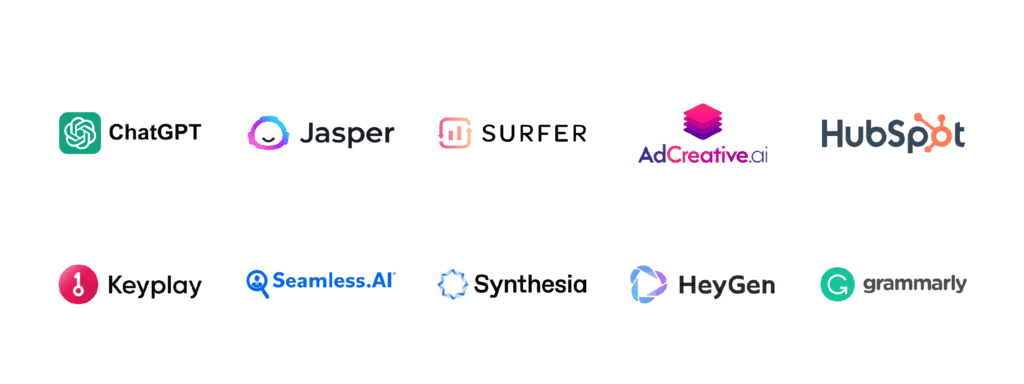Unlock Efficiency and Development With AI Automation for B2B Firms
AI automation is transforming the landscape for B2B business. It improves operations and reduces reliance on human treatment. This change enables businesses to make quicker, data-driven choices. As companies check out which refines to automate, they must likewise think about the right tools to execute. However, obstacles stay in adopting AI modern technology. Minarik AI. The effects of these adjustments could form the future of several firms in ways yet to be fully recognized
Understanding AI Automation in the B2B Context
As businesses significantly seek effectiveness, comprehending AI automation in the B2B context becomes crucial. AI automation entails utilizing advanced technologies to improve procedures, decrease human treatment, and boost decision-making procedures. In the B2B landscape, this can manifest in different forms, such as automating customer care communications, taking care of supply chain logistics, or enhancing marketing projects. Companies can utilize AI to evaluate enormous datasets promptly, enabling them to recognize patterns and understandings that notify strategic choices. In addition, AI systems can integrate flawlessly with existing innovations, giving a natural platform for taking care of company features. This understanding prepares for organizations to check out just how AI can transform their operations, boost productivity, and eventually foster lasting growth in an affordable market.
Trick Benefits of Executing AI Automation

Recognizing Procedures Suitable for Automation

Choosing the Right AI Devices for Your Company
When B2B firms take into consideration automating their processes, picking the right AI tools comes to be vital for accomplishing desired end results. Companies must begin by assessing their special requirements and objectives, guaranteeing placement with business goals (Business Process Automation). Evaluating the integration, versatility, and scalability capacities of potential tools is essential, as these factors figure out long-term effectiveness. Organizations must additionally consider user-friendliness and the level of support given by suppliers, as these elements can affect effective execution. In addition, evaluating client testimonials and instance studies can offer insights into exactly how specific AI remedies perform in real-world scenarios. By carefully choosing AI tools that fit their functional requirements, B2B business can enhance performance and drive development while minimizing potential disruptions
Overcoming Difficulties in AI Fostering
B2B business often experience considerable difficulties in embracing AI innovations, especially issues connected to information top quality and resistance to change administration. Poor data quality can hinder the effectiveness of AI systems, while employee hesitation to welcome brand-new procedures can delay implementation efforts - AI Automation For B2B. Addressing these challenges is essential for effective AI assimilation and maximizing its possible advantages
Information High Quality Issues
Ensuring high data top quality is important for the successful fostering of AI modern technologies in business-to-business atmospheres. Incorrect, incomplete, or obsolete data can severely hinder AI campaigns, resulting in erroneous understandings and poor decision-making. Firms frequently face obstacles such as data silos, incongruities across various sources, and a lack of standard data layouts. To conquer these concerns, organizations have to invest in data cleaning, integration, and administration processes. Carrying out robust information monitoring techniques ensures that the information fed right into AI systems is reputable and pertinent. Fostering a culture of information top quality understanding amongst staff members can enhance information precision over time. By addressing data high quality concerns, B2B companies can release the complete possibility of AI automation, driving efficiency and growth.
Adjustment Management Resistance

Measuring the Influence of AI Automation
Gauging the impact of AI automation in B2B companies calls for a clear understanding of crucial performance indicators (KPIs) that straighten with service objectives. explanation Efficient information analysis strategies are necessary for translating the outcomes, while durable ROI assessment methods assist determine the economic benefits of automation initiatives. Together, these parts supply a substantial framework for reviewing AI's contributions to business success.
Secret Efficiency Indicators
Secret efficiency indicators (KPIs) act as important devices for B2B companies to analyze the efficiency of AI automation campaigns. By establishing clear metrics, organizations can measure enhancements in operational effectiveness, price reduction, and earnings growth directly attributable to automation. Usual KPIs include cycle time decrease, mistake rates, consumer fulfillment ratings, and staff member efficiency degrees. These indications offer understandings right into just how AI systems are enhancing processes and improving total performance. Furthermore, tracking KPIs makes it possible for companies to determine locations for more improvement and to line up AI automation initiatives with strategic company goals. Inevitably, a well-defined framework of KPIs assurances that B2B companies can quantitatively review the influence of AI automation on their operations and drive continuous growth.
Data Evaluation Strategies
Efficient information evaluation techniques play a vital duty in reviewing the impact of AI automation within B2B companies. By utilizing statistical techniques, organizations can determine patterns and patterns in operational data, enabling them to evaluate the effectiveness obtains attained via automation. Strategies such as regression evaluation and time collection projecting offer understandings right into how AI-driven processes affect performance and decision-making. In addition, information visualization tools can properly connect searchings for to stakeholders, promoting educated calculated choices. Artificial intelligence algorithms can even more enhance evaluation by forecasting future results based on historical information, using actionable insights. Inevitably, these strategies allow B2B companies to measure success and maximize their AI automation efforts, guaranteeing alignment with organization goals and improving overall efficiency.
ROI Evaluation Approaches
Reviewing the roi (ROI) of AI automation is vital for B2B companies looking for to comprehend the financial effects of their technological campaigns. Business can use different ROI assessment approaches to evaluate the effectiveness of AI implementations - AI Automation For B2B. One efficient approach entails calculating price savings by contrasting operational costs prior to and after automation (Minarik AI). In addition, measuring performance enhancements with essential performance signs (KPIs) assists quantify the advantages of AI. Client fulfillment metrics can also give insights right into the effect of automation on service top quality. To assure a thorough assessment, firms need to think about both direct abstract benefits and monetary returns, such as boosted decision-making abilities and affordable advantage. This complex examination enables B2B business to make enlightened decisions pertaining to future investments in AI innovation
Future Fads in AI Automation for B2B Business
What technologies exist in advance for AI automation in B2B business? Arising trends suggest a substantial change towards improved information analytics capabilities, allowing organizations to make more educated choices. Predictive analytics will become progressively crucial, allowing companies to expect market adjustments and consumer needs. Additionally, the combination of AI with Web of Points (IoT) technology is expected to improve operations by supplying real-time understandings and automation of procedures. Companies will also focus on enhancing client experiences with customized advertising driven by AI formulas. Furthermore, innovations in natural language handling will certainly facilitate much better communication between clients and companies. As these patterns progress, B2B business need to adapt to take advantage of AI automation efficiently, guaranteeing sustained growth and affordable benefit.
Often Asked Questions
What Industries Benefit the A Lot Of From AI Automation in B2B?
Production, financing, health care, and logistics industries profit one of the most from AI automation in B2B. These sectors utilize AI to enhance processes, enhance decision-making, and boost general functional performance, driving considerable growth and innovation.
Just How Does AI Automation Effect Employee Responsibilities and Responsibilities?
AI automation reshapes staff member duties and obligations by improving recurring jobs, enabling employees to focus on strategic efforts. This shift promotes skill growth, enhances performance, and motivates cooperation, eventually driving business growth and technology.
What Are Typical Mistaken Beliefs About AI Automation in B2B?
Usual misunderstandings concerning AI automation in B2B include worries of job loss, ideas that AI can fully replace human judgment, and ignoring the relevance of collaboration in between AI systems and employees for suitable outcomes.
How Can Services Make Certain Data Privacy With AI Automation?
Companies can assure information personal privacy with AI automation by implementing robust file encryption procedures, sticking to governing conformity, performing routine audits, and training staff members on information handling practices to reduce dangers and secure delicate info.
What Are the Expenses Linked With Executing AI Automation?
The prices associated with implementing AI automation include software application purchase, facilities upgrades, training workers, continuous maintenance, and prospective downtime during integration. Additionally, companies might sustain costs connected to data safety and security and compliance steps.
Measuring the impact of AI automation in B2B firms calls for a clear understanding of crucial efficiency signs (KPIs) that align with business purposes. Trick performance indicators (KPIs) offer as essential devices for B2B business to evaluate the effectiveness of AI automation campaigns. Efficient data analysis strategies play a crucial role in assessing the impact of AI automation within B2B firms. Examining the return on investment (ROI) of AI automation is important for B2B companies seeking to comprehend the financial implications of their technological efforts. What technologies lie ahead for AI automation in B2B business?